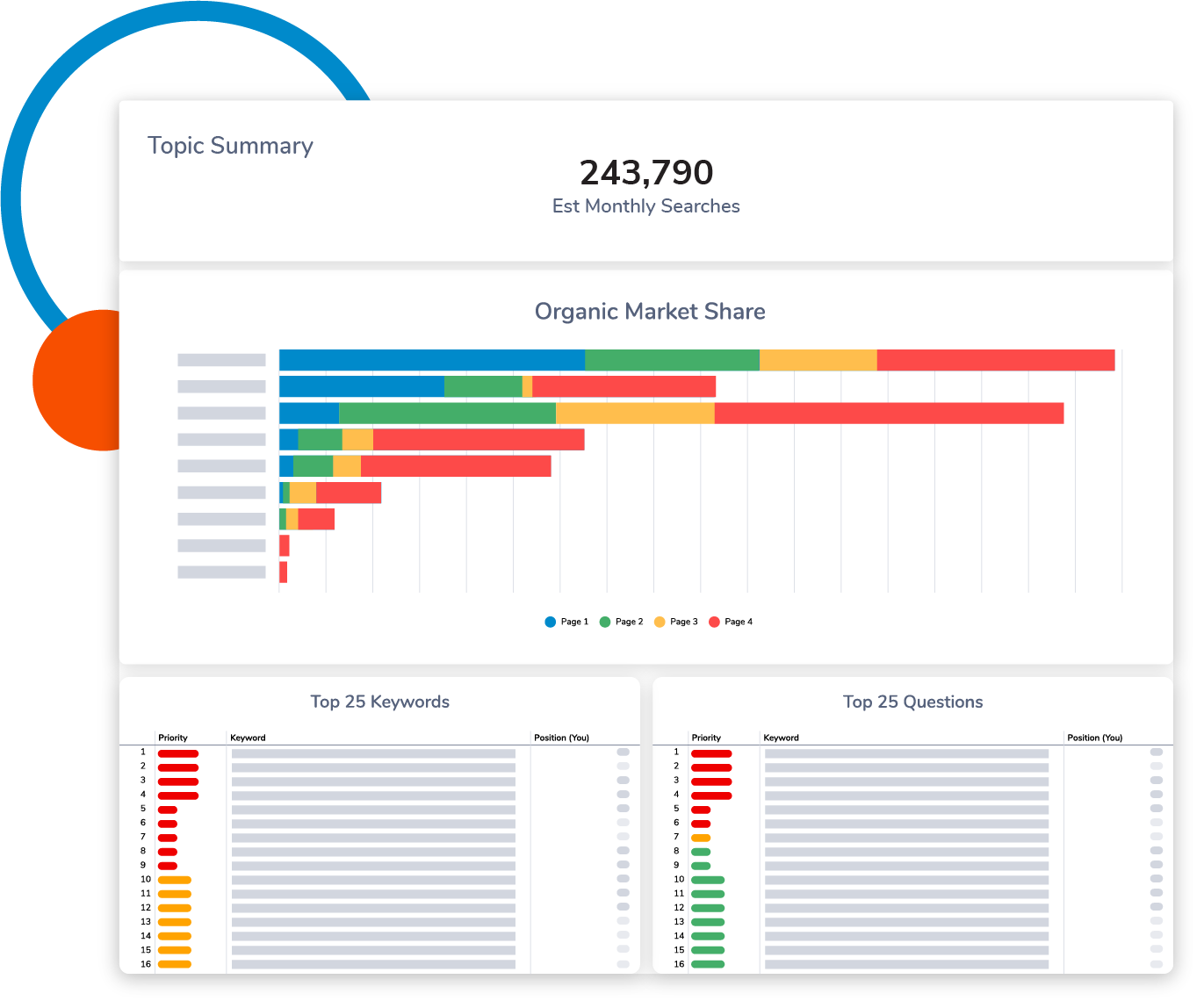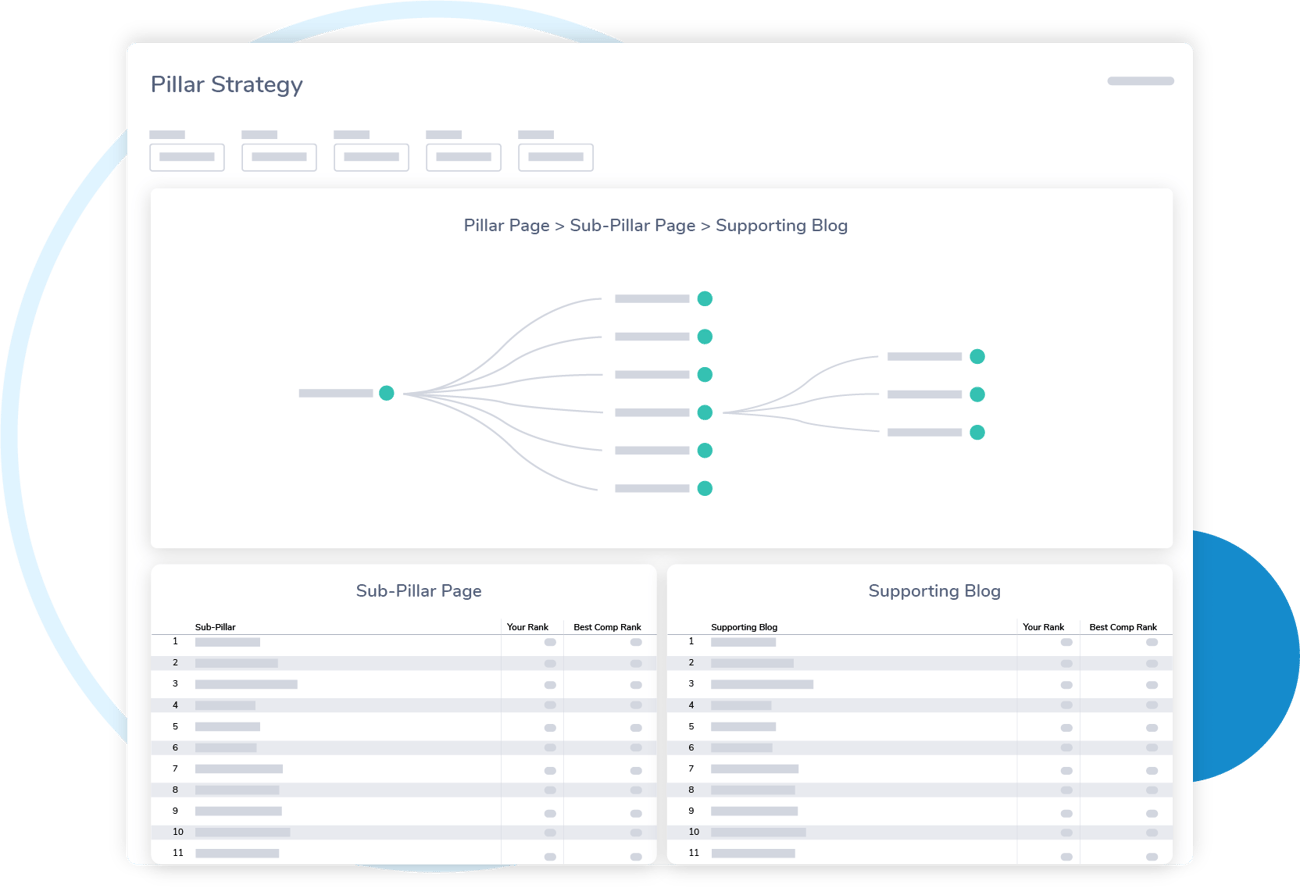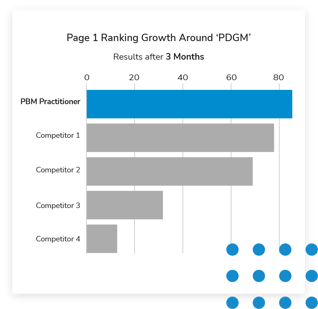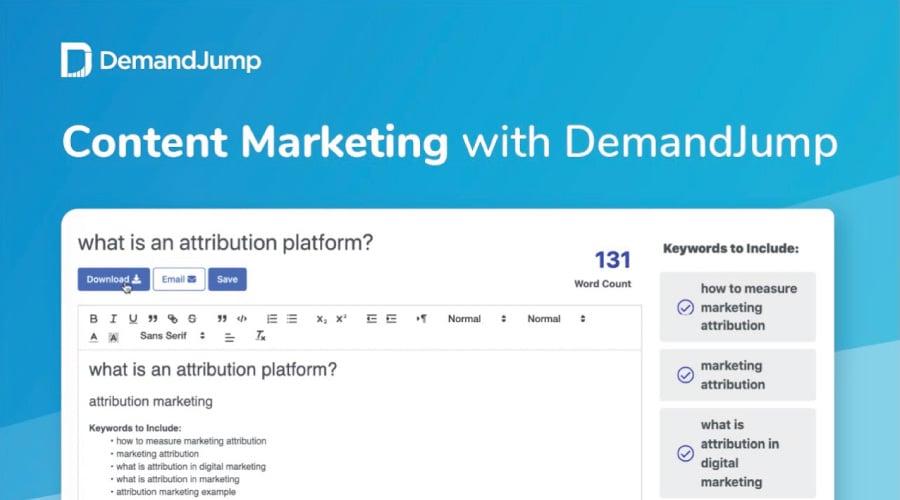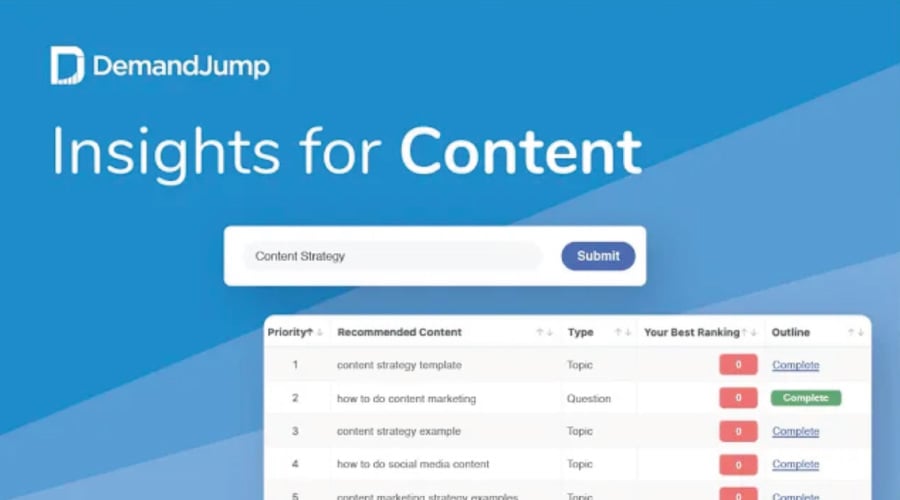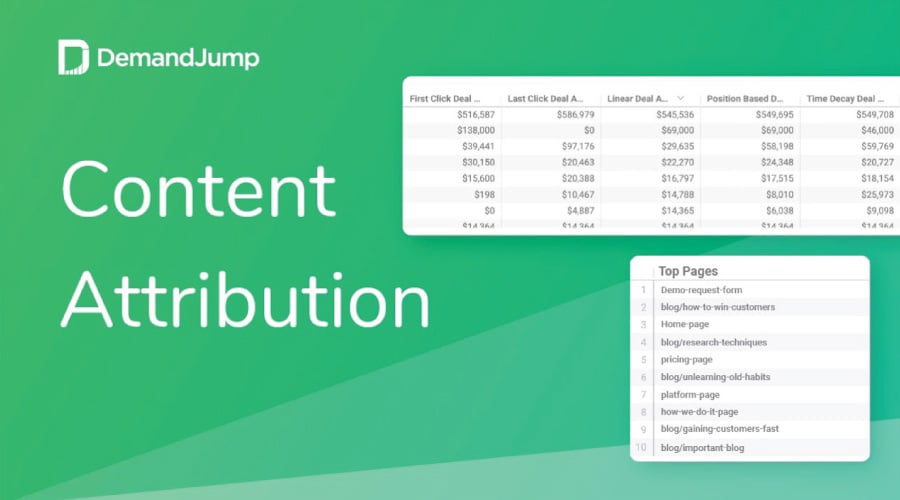It’s nearly impossible to have good SEO without a comprehensive SEO strategy. That’s why it’s essential to understand how SEO actually works for businesses creating online content. This is especially important, because once you get past the first position, click-through-rates decline significantly. In fact, position ten only sees 2.5% of clicks.
One important piece of SEO is keyword research. But why are keywords important? It’s pretty simple: they tell Google what your content is about, how your content connects to a larger topic, and who your content is meant to reach.
Let’s explore the different types of keywords in SEO and how they impact your ability to rank higher on Google so you can meet your audience’s needs. We’ll also answer questions like “What are the 3 main elements of keyword research?” so you can get started improving your rankings today.
What Are SEO Keywords?
SEO keywords are words and phrases that help customers find your content through search engines. To attract more relevant, organic search traffic, SEO keywords—which may range from single words to intricate phrases—help writers create valuable website content and make that content easier to find. Plain and simple: high-value keywords are one of the most essential elements of an SEO strategy. Seriously, your content marketing strategy can’t succeed without them.
One of the biggest benefits of SEO keywords is that your website can rank better on SERPs. When you optimize your content around the words and phrases that people actually search for in queries, you have a much higher chance of readers finding your brand. That means you should avoid keyword stuffing—use high-value keywords over a large quantity—in hopes of ranking in a top position on Google. Instead, you need to weave the most searched keywords that relate to your topic throughout your content. Putting it all together will help you create content that actually answers your audience’s questions.
What Are the 4 Types of Keywords?
There are four types of keywords you can use within your content to rank higher on SERPs: short-tail, long-tail, questions, and intent targeting keywords.

Short-Tail Keywords
Short-tail keywords—otherwise known as “seed” or “head” keywords—contain one to three highly-searched words. Because they serve as the basis for more specific keyword suggestions, short-tail keywords are crucial for effective keyword research. Typically short-tail keywords are the broadest type of words you can use, which works well when you want to focus on a comprehensive topic. However, because short-tail keywords relate to a lot of searches, they are far more competitive, and thus more challenging to rank for. However, if you can land on page one for a short-tail keyword, you’ll definitely be rewarded because they often have more search traffic than long-tail keywords, which draws a greater audience to your website.
For example, keywords like “SEO” or “list of keywords” are short-tail. As you can see, they’re incredibly broad topics that cover a lot of ground. In fact, “SEO” returns over 675 million results on Google. That means it takes a lot of work to get your content ranked high enough to be seen by readers. But using short-tail keywords as titles for your Pillar-Based Marketing (PBM) Pillar page helps you set up a content strategy. Using that strategy, you can cover the broad topic and then focus on more niche keywords and questions in the future.
Long-Tail Keywords
Long-tail keywords contain a minimum of four words. These keywords enable you to target niche demographics since they are more precise. In some instances, they can even be full sentences. Since they represent more specialized search queries, long-tail keywords may give you the edge in a competitive, niche market. Although people don't search for long-tail keywords as frequently, they can account for a significant portion of all searches when connected together in content strategies like PBM. Ultimately, you can boost the amount of high-quality traffic to your website and increase the likelihood that readers will convert by using long-tail keywords.
Examples of long-tail keywords include, “SEO best practices for marketers” or “types of keywords in digital marketing.” These keywords are much more specific than their short-tail counterparts, which will help you focus on reaching your target audience even further. Using long-tail keywords in a PBM strategy means creating Sub-Pillar pages that are more specific than your Pillar, but still under the same topic.
Questions
While questions could also be considered long-tail keywords, they’re unique in the sense that searchers expect answers. Questions are the most specific type of keyword you can use in your PBM strategy. Rather than looking for “SEO” in general, your target audience could be searching for “What are the top three SEO secrets in digital marketing?” Typically, keyword questions are best for Supporting Blog titles, as they are incredibly niche and often lead to detailed answers around an individual topic. And if you answer them directly, you’re more likely to get the answer boxes on Google SERPs!
Intent Targeting Keywords
Intent keywords are the unique terms that buyers search for online to indicate how likely they are to take a specific action. By analyzing keywords based on their intent, you can more successfully meet the needs of users. That also means you can match your content and landing pages with their intent. By utilizing keyword intent, marketers can boost website traffic as well as attract more qualified prospects, The four types of intent targeting keywords include: informational, transactional, commercial, and navigational.
- Informational: These keywords aren’t about selling to your audience, but rather providing useful information. Searchers want answers to questions or general information on a topic, and that’s where you should focus your content. These can be searched as “lists” or “trends.”
- Transactional: Searchers of these keywords are looking to complete an action or purchase your product or service. Most often these keywords include phrases like “for sale” or “where to get the best…” Your content should focus on selling to these searchers.
- Commercial: If searchers are looking to shop around and find more information about a product, they’ll use commercial keywords, like “types” or “reviews.” Commercial keywords are more investigative than purchase-driven.
- Navigational: These keywords contain your business’s name because searchers know your business and want more information. They might be looking for hours of operation or coupons your business offers.
You can find all of these different keywords using DemandJump’s insights platform. You’ll get the top keywords and phrases for any topic your business wants to rank for in just a few minutes.
What Are the 4 Criteria for Keywords?
All keywords should have a large volume, have relevance to the searcher’s needs, give you authority on a topic, and match the intent of your target audience.
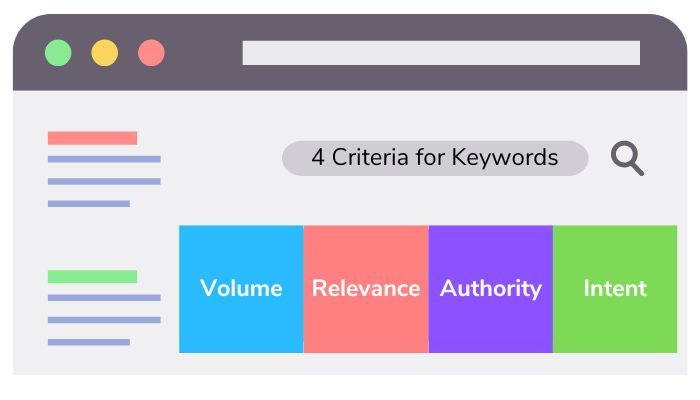
Volume
Reaching an audience comes with choosing keywords that are actually being searched. In other words, the keywords you use in your content need to be things people are looking up, not your best guess at what will rank. Using those high-volume keywords, you’ll be more likely to reach a wider audience. But what’s more important is you’ll be providing answers to your audience’s questions. You might think stuffing the same keywords in your content over and over can help you rank higher in search results. And while you might rank initially, there needs to be valuable content attached to it to stay at the top. Because volume isn’t about how many times you use a keyword, but rather how often they are searched—especially in connection to broad topics.
Relevance
It’s clear that people want to avoid the fluff pieces and simply find answers to their questions. That’s why the keywords you use need to be relevant to your target audience’s searches. If you meet their needs by providing accurate and purposeful content related to those keywords, you can rank higher on SERPs and ultimately reach more people. But you also want your content to be relevant to the questions they’re asking. Have you ever searched a question online only to go through content that doesn't really give you an answer? It happens a lot. And if you connect your content to the keywords, you can provide a great resource to customers.
Authority
If you’re writing content, you probably want to be the number one source of information in your industry. That means using keywords to your advantage to create valuable, helpful content that actually answers your audience’s questions. Sounds simple, right? Well, it takes time to create an arsenal of content that covers a wide range of topics. But once you have answers to the top keyword questions, you’ll find that you’re giving more people better results than your competitors. That means that your readers and Google will know you’re a valuable resource that they can count on for accurate information over other sources.
Intent
As we mentioned above, the intent of the searcher is an essential piece to keyword ranking. Understanding what they’re looking for and how they’re looking for it will help you tailor your content to their needs. If your target audience is looking for information, for example, it’s best practice to write helpful content that provides knowledge on a topic, rather than focus on transactional or commercial keywords.
What Are the 3 Steps to Keyword Searching?
When it comes to keyword research, you’ll need to figure out what you want to rank for, find terms that are related to your topic, and select the most relevant keywords to match your goals.
- Determine the topic you want to rank for on SERPs.
- Find keywords that connect to your search terms.
- Analyze the relevance and effectiveness of keywords.
To figure out the main topic you want to rank for on Google, you need to think about what general terms are related to your business and your product or service. For example, a board game company called BGC wants to rank for game-related topics, like “roleplaying board games.” To place higher on SERPs, BGC really wants to know the ins and outs of their topic before selecting keywords. What does their audience actually want to know about?
Once they set a topic, it’s time for BGC to find keywords. Keyword research can take hours—even days—and it’s hard to know which keywords will actually get you ranked. Thankfully, BGC took out the guesswork for not only finding keywords but also understanding their relevancy, by using DemandJump. DemandJump’s insights platform gathered all of the data necessary for BGC to find the most relevant and high-value keywords surrounding their topic. That means they didn’t have to waste time with guesswork and gained solid keywords that were sure to rank. Using this search method, BGC saw several top 10 SERPs rankings and even a few in the first position!
Beyond keyword research, with DemandJump BGC was able to build its whole Pillar strategy from the ground up. That means, once they settled on “roleplaying board games” as their Pillar, they could set up Sub-Pillars and Supporting Blogs.
What Are Good SEO Keywords?
“Good” SEO keywords depend on the ultimate goal of the content. Are you trying to sell your product? Informing your audience? Or explaining how your product compares to other competitors? Below are a few examples of SEO keywords you can use that match intent:
- Informational keywords list
- What are the best SEO techniques?
- Types of engaging content
- How to select the best SEO keywords
- Why is it important to use SEO?
- Transactional keywords list
- Get SEO platform quote
- Buy SEO keyword research tool
- Online SEO company deals
- SEO software discount
- Commercial keywords list
- Best SEO agencies in Indiana
- Affordable SEO keyword platform
- SEO platform reviews
- Top SEO companies
- Navigational keywords list
- DemandJump blog
- Google paid ads pricing
- Nike running shoes
- Best Apple laptop
What Are Examples of Using Keywords?
There are several examples of using keywords to reach a target audience. The most powerful keywords allow you to provide helpful, valuable content to meet your audience’s needs. Without having the right keywords in place, it can be difficult to rank higher on SERPs and gain more organic traffic.
Here are a few examples of using keywords in content marketing:
- A speaker company wants to rank for keywords related to “Studio Quality Speakers” to reach an audience of musicians and recording studios. They conduct research and find several broad keywords for their Pillar to create an “ultimate guide” on studio speakers, their role in creating music, and even their history.
- A SaaS company has written a Pillar about “SEO Techniques.” It’s time for them to introduce their Sub-Pillars about “How to Use SEO in Marketing,” “Why Is SEO Important,” and “Creating an SEO Strategy.” Each Sub-Pillar focuses on different aspects of SEO, like how content marketers can implement it or how it impacts online searches.
- A book printer has determined its Pillar and Sub-Pillars about printing on-demand books. To focus on the intent of its customers, the company writes Supporting Blogs about “Where to print on-demand books near me?” “What are the best book printing businesses?” “How do I print a book on demand?”
As you can see, there are a wide variety of keywords businesses can use to reach their target audience and match their intentions.
How Do I Find Trending Keywords for SEO?
Finding the best keywords doesn’t have to be a tedious task. In fact, it can be rather easy with the right tools. That’s where DemandJump comes in! Our platform gives you a comprehensive look at the top keywords, detailed insights, and research. Not only that, but with DemandJump you have the ability to build your own PBM strategy. If you’re interested in taking your content to the next level, so you can reach a wider audience, gain more organic traffic, and increase conversions, try DemandJump for free. See just how much you can accomplish with the right SEO keywords!

